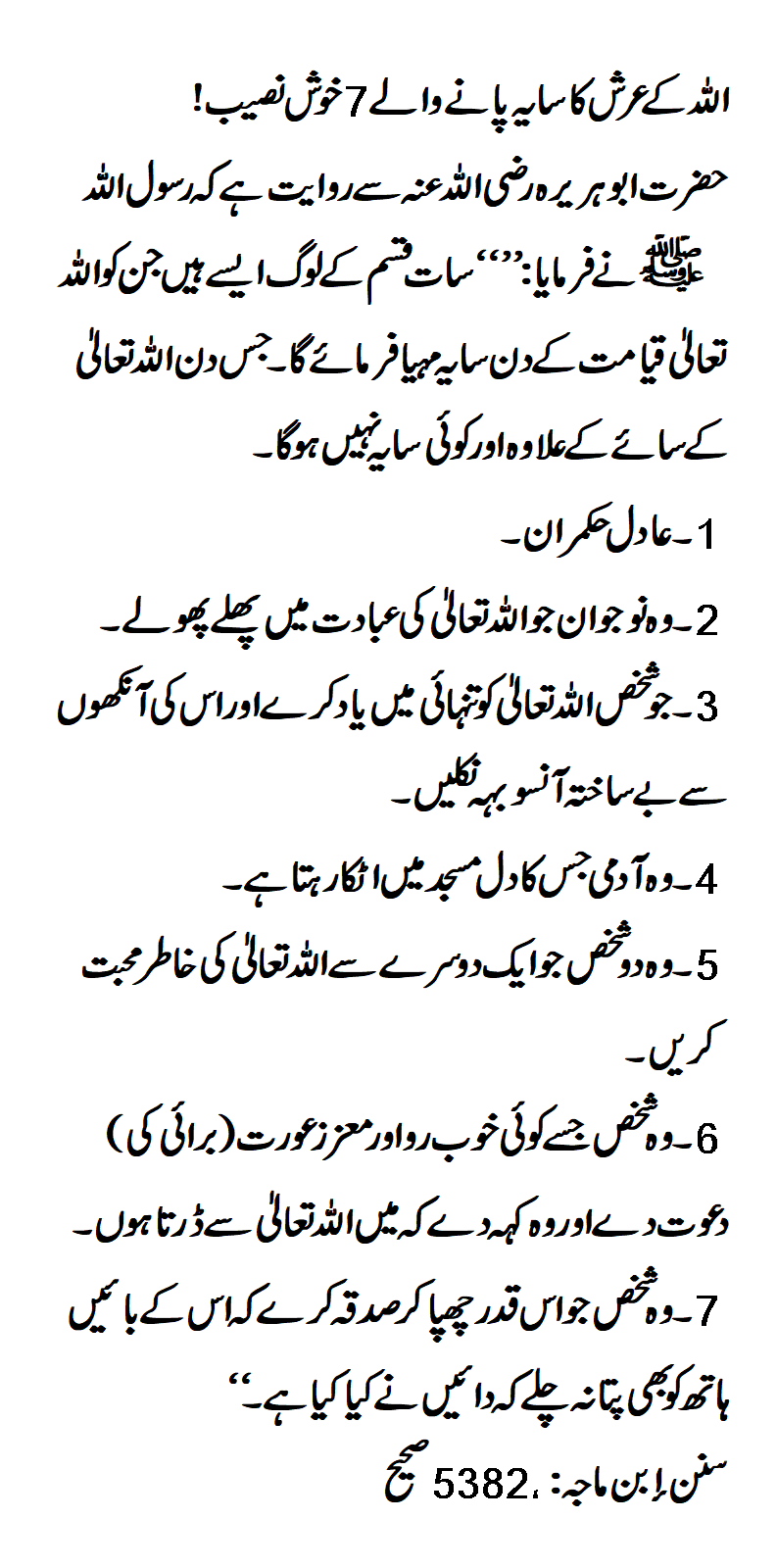Allah will give shade, to seven, on the Day when there will be no shade but His:
– A just ruler,
– a youth who has been brought up in the worship of his Lord,
– a Muslim whose heart is attached to the mosques,
– two people who love each other only for Allah’s sake and who meet and part in Allah’s cause only,
– a man who refuses the call of a charming woman of noble birth for illicit intercourse with her and says, “I fear Allah”,
– a person who gives charitable gifts so secretly that his left hand does not know what his right hand has given,
– a person who remembers Allah in seclusion and sheds tears.” (Bukhari, Adhan 36, Zakah 16, Riqaq 24, Hudud 19; Muslim, Zakah 91. See also Tirmidhi, Zuhd 53; Nasai, Qudat 2)
There are two expressions that need to be dwelled on in the hadith that describes seven happy people or seven nice men. One of them is the phrase “zillullah = Allah’s shade”. Since Allah does not have a shadow, what is meant by it is honoring just like the Kaaba being called
“Baytullah = Allah’s house” or the shade of His Throne (Arsh) or security provided by Allah. As a matter of fact, in some versions of the hadith, the following is stated clearly: “Allah will house them in the shade of His throne.” It is stated by those expressions that Allah will protect those slaves of Him from troubles with His mercy.
On the other hand, the people to be given shade by Allah are not only those seven people. For, some other people with important qualifications are mentioned in other hadiths: For instance, the following hadith is one of them: “He who gives time to one who is financially hard up in the payment of debt or writes off his debt, Allah will provide him His shadow on the Day of Judgment when there will be no shade but His.” (see Muslim, Zuhd 74, Tirmidhi, Buyu’ 67; Ibn Majah, Sadaqat 14)

That seven people are mentioned in this hadith does not deprive other lucky people mentioned in other narrations of this happiness.